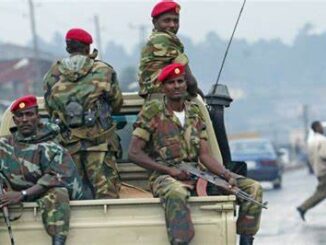The ongoing drama of the successful elections held in Sierra Leone on 17 November ended with a handshake yesterday when Sierra Leone Peoples Party (SLPP) challenger Julius Maada Bio conceded the re-election of All People’s Congress (APC) President Ernest Bai Koroma. Two weeks of SLPP efforts to persuade the international community that the election was fatally flawed came to an end on 30 November when the United Nations Security Council endorsed the formal announcement of the election results.
The elections signal a groundswell of change across the nation. It was the first time that elections at all four levels—presidential, parliamentary, paramount chief MPs, and local council—were held simultaneously. The presidential election marked the first time that a candidate ran successfully on a platform of economic development, something that the previous generations of the APC leadership, Siaka Stevens and Joseph Momoh, never even seriously attempted. The 1,314,881 votes for Koroma, 58.7% of the total, so far exceeded the 837,517 votes for Maada Bio that no runoff election is required, and the pitfalls of a coalition government will be avoided.
This election also built on the APC’s effort in the 2007 election to move beyond the ethnic and regional divisions which have characterized both parties since independence, in which the APC was the party of Temnes and Krios, in the north and west, and the SLPP was the party of the Mendes, in the south and east. In 2012, Ernest Koroma did not just exceed his 2007 polling record in every one of the 14 districts; some of his largest vote increases occurred in the SLPP heartland, the southern districts of Moyamba, Pujehun, Bo, and Bonthe. Without these votes, he would not have passed the 55% mark, and we would today be facing a second round. The emergence of the APC as a political party with nationwide, multi-ethnic appeal based on development, is a momentous achievement.
Sierra Leone will really need an effective opposition party to keep tabs on the unprecedented levels of foreign investment that are anticipated during the next five years. The voters so resoundingly rejected the SLPP candidate, the general who presided over much of the civil war, that the party must urgently find leadership that looks to the future and is unburdened by the terrible past. Conceding electoral defeat is a crucial first step toward consolidating the SLPP’s role as the leading opposition party.
Last but not least, the successful elections mark a notable success for the United Nations Integrated Peacebuilding Office in Sierra Leone (UNIPSIL), which provided essential technical support to the National Electoral Commission. The Security Council’s call for an exit strategy for UNIPSIL is the best news of all.




